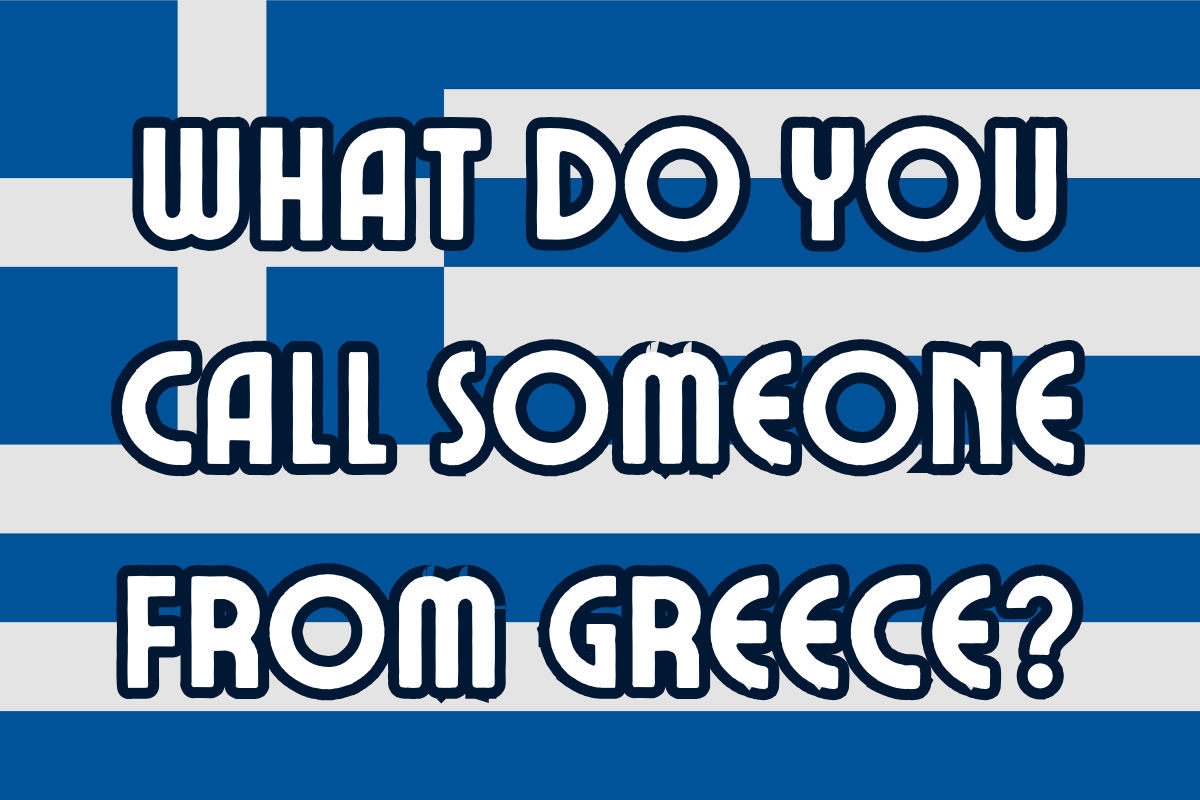Someone from Greece is called Greek. This is the simple answer and anyone of Greek nationality or association would simply be called Greek. Sometimes, Greeks are called Hellenes, though this is not very common among day-to-day English speakers and usually refers to something broader. Greece is also fairly ethnically diverse in its own right.
Greece is one of the oldest and most storied nations in the west, but it’s always important to remember in questions like this that the idea of the nation state is a very recent one relatively speaking.
Greece, as we know it today, is quite young, and yet people from there would have been called Greek for a long time.
Let’s find out more.

What is someone from Greece called?
Someone from Greece is called Greek.
This is the most common name for a person of Greek identity, whatever may constitute that identity for a given individual.
Let’s first look at it from the simplest point of view: the modern sense of nationality.
Greece today is a defined country in south-east Europe, and people from there have Greek citizenship.
Whether they are first-generation immigrants or someone who is descended from the Ancient Athenians themselves, they are all Greek in some sense.
Sometimes, though, you may hear the term “Hellenes” used.
This is much more likely to be something the Greeks themselves would use rather than outsiders, but at the same time it has to an extent been adopted outside of Greece.
This is the traditional appellation of the Hellas region, harking back to the mythological figure of Hellen.
On the other hand, the term Greek, and indeed Hellene, can refer to a broader ethnic group which is not only found in Greece but outside it, too.
Of course, there are many Greek islands, all of which feel something distinct about their identity, though it certainly comes under a Greek umbrella.
Cyprus, for example, is an important centre of Greek people, though they would call themselves Cypriot.
They are, though, ethnically Greek.
Similarly, you will find ethnic Greeks in Italy, Egypt, Albania, and Anatolia.
Furthermore, Greece itself is populated by many other ethnic groups; Greeks make up around 91% of the population, with around 4% being Albanian and the rest made up of minority groups.
Most are Greek Orthodox Christian, though you also have large non-Christian populations.
Ultimately, national identity is a lot more complex than what’s on your passport—but someone from Greece is called a Greek.
Where does the name “Greece” come from?
It’s important to note that Greece is very much the Anglicized name of the country; in Greece today, it is called by its own people Elláda.
This relates to the term Hellenes mentioned earlier, which is how modern Greeks often think of the country.
The term Greece, though, as well as Greek, are derived from Latin.
There, Graecia and Graecus come from the name of the Graeci, the people of Ancient Greece who were among the first to settle there.
The etymology of this name is not certain, though it’s thought to relate to a Proto-Indo-European root meaning “to grow old”.
Ultimately we don’t know for sure where this particular name came from, but one thing you’ll very commonly see in a country’s name, especially when it is the name used by those outside the country, is that the place is named after the people who lived there, rather than the other way around.
What is the difference between Greek and Grecian?
A person from Greece is themselves Greek.
Equally, something from or of Greece would be called Greek.
Food, for instance, would be called Greek food; or Greek exports whatever they happen to be.
Greek is either an inhabitant of the country or something directly derived from that place.
Grecian, on the other hand, means something quite different.
It essentially means that something is in the style used by Greek people, and so you could make a Grecian pot even if you were not a Greek.
The distinction is that the exact provenance of the item is not Greek; it is simply made in a Grecian style.
You could not, then, call a person Grecian or really anything that came directly out of the country.
Where do Greeks live?
In all of this it’s also important to be aware that Greeks do not only live in Greece.
They are spread far and wide across the world and the broader Greek diaspora is still very much a part of the world’s overall Greek population.
Estimates for the population range up to 17 million, and around 10 million of those live in Greece itself.
There is also a considerable population of Greek people in the U.S., with anywhere from 1.5 to 3 million Greeks estimated to be living there.
There are also close to half a million Greeks living in Germany Australia, as well around 350,000 living in the United Kingdom.
The point being that these people may feel multiple things at once about their identity; they are of Greek heritage and maybe even were born in Greece, but have made a home out of another nation.
So, again, there’s a simple answer and a more complex one. If you are a citizen of the modern nation state of Greece, then you are Greek.
If you are descended from Greek people, you are Greek.
But at the same time, the Greeks are an ethnic group that can be found in many different Greek islands, Albania, Italy and Egypt.
Greek historically speaking covered a much wider range than we imagine today.

